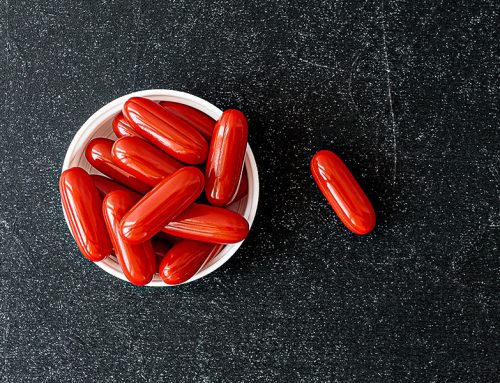
Coenzyme Q10 supplementation performs many roles in the body that benefit athletes and people who exercise. It is an essential co-factor in cellular energy production, it is the most important fat-soluble antioxidant preventing oxidative damage and muscle damage,, and it improves endothelial function.
Does Coenzyme Q10 supplementation improve exercise capacity? Do we know? In 2016, Professor Julio J. Ochoa and his colleagues at the University of Granada in Spain conducted an exhaustive review of the published literature about the Coenzyme Q10 supplementation and exercise. The researchers did database searches and found 372 journal articles about Coenzyme Q10 and exercise. An amazing number.
Variation in the Coenzyme Q10 and exercise studies
Of course, the results of the studies reported in the 372 journal articles varied quite a bit for a variety of reasons:
- differences in the Coenzyme Q10 formulations used
- differences in the Coenzyme Q10 dosages used
- differences in the timing of the Coenzyme Q10 supplementation
- differences in the exercise tests used as measures of outcome
- differences in the types and characteristics of study participants
- differences in the outcome measures used
Inclusion criteria for Coenzyme Q10 and exercise studies
Accordingly, the Spanish researchers applied strict inclusion criteria to the studies under consideration and limited their final review to the data in 13 selected articles.
What were the selection criteria for the Coenzyme Q10 and exercise studies? The selected studies had to meet all of the following requirements:
- set up as a randomized controlled trial with an intervention group and a placebo group
- conducted in healthy human subjects (age and fitness level not a factor)
- relating the effects of Coenzyme Q10 supplementation to exercise capability
- published in peer-reviewed journals
Conclusions drawn from the review of Coenzyme Q10 and exercise studies
In the end, based on the data in the 13 “best” studies, the researchers concluded that the unique properties of Coenzyme Q10 make it appropriate for use in nutritional supplements. Coenzyme Q10 supplementation passes the test for suitability as a nutritional supplement for healthy individuals who exercise in several respects:
- Coenzyme Q10 improves exercise capacity
- Coenzyme Q10 protects against the oxidative damage, muscle damage, and inflammation that intense exercise causes
- Coenzyme Q10 is safe at doses much higher than needed for beneficial health and exercise effects
- Coenzyme Q10 is affordable
Participants in the Coenzyme Q10 and exercise studies
In all, there were 325 participants in the 13 studies that were reviewed.
- the average age of the study participants in the studies ranged from 19.2 ±2.3 to 48 ± 2.7 years (the absolute age ranged from 17 to 52 years)
- the gender of the study participants was predominantly male (roughly, 2 out of 3 male)
- the fitness level of the study participants ran the gamut from well-trained to moderately trained to untrained
- the study participants were taking part mostly in studies of endurance exercise (long-distance running, cycling, cross-country skiing) as opposed to strenuous exercise (weight lifting, sprints); in some of the studies, the participants were required to continue the exercise to the point of exhaustion
Outcomes in the Coenzyme Q10 and exercise studies
- All of the studies that measured the effect of Coenzyme Q10 supplementation on plasma Coenzyme Q10 levels reported a significant rise in the plasma levels
- Six of the studies measured the direct effect of Coenzyme Q10 supplementation on performance as a primary outcome. In three of the studies, the researchers were able to establish a statistically significant effect of Coenzyme Q10 supplementation on performance as compared with placebo supplementation. In the other studies, the researchers recorded beneficial effects in the Coenzyme Q10 supplementation group, but the improvements could not be said, conclusively, to be derived from the Coenzyme Q1O supplementation. The researchers were, understandably, reluctant to overstate the case for Coenzyme Q10.
- Four studies measured the effect of Coenzyme Q10 supplementation on bio-markers of oxidative stress or muscle damage caused by exercise. On the whole, the researchers found, for example, that plasma levels of malondialdehyde (a known marker for increased oxidative damage) increased to a lesser extent in the Coenzyme Q10 supplementation group than in in the placebo group. Other studies reported reductions in the levels of bio-markers of oxidative stress caused by exercise; the reductions did not reach the level of statistical significance but might have clinical significance.
Quick definition: oxidative stress (and the subsequent oxidative damage) is caused by an imbalance in the quantities of potentially harmful reactive oxygen species (free radicals) and the neutralizing antioxidants (of which Coenzyme Q10 is an important one) in the body.
Professor Ochoa’s review of Coenzyme Q10 and exercise studies
Professor Ochoa’s study updates the earlier systematic review done by Dr. Rosenfeldt et al. who reviewed 11 studies conducted before 2003. Six of those studies reported statistically significant beneficial effects of Coenzyme Q10 supplementation on exercise capacity.

Dr. William Judy, SIBR Research Institute, has written the definitive article about Coenzyme Q10 absorption, transport, and function. His article can be found at http://www.zmc-usa.com/docs/CoQ10_Facts_or_Fabrications.pdf
Coenzyme Q10 for healthy people as well as heart failure patients
We know already that Coenzyme Q10 supplementation is important:
- for chronic heart failure patients (Dr. Mortensen’s Q-Symbio study)
- for patients taking statin medications (Drs. Okuyama and Langsjoen’s recommendation for new guidelines)
- for elderly home-living citizens (Dr. Alehagen’s KiSel-10 study)
- for Gulf War veterans (Dr. Golomb’s Gulf War Illness study)
- for heart surgery patients (Dr. Judy’s study done with Dr. Folkers)
Now we can see that people who exercise — male or female, young and older, very fit or moderately fit or sedentary — can benefit from a good Coenzyme Q10 supplement.
Sources:
Alehagen, U., Johansson, P., Björnstedt, M., Rosén, A., & Dahlström, U. (2013). Cardiovascular mortality and N-terminal-proBNP reduced after combined selenium and coenzyme Q10 supplementation: a 5-year prospective randomized double-blind placebo-controlled trial among elderly Swedish citizens. International Journal of Cardiology, 167(5), 1860-1866.
Folkers, K., Vadhanavikit, S., & Mortensen, S. A. (1985). Biochemical rationale and myocardial tissue data on the effective therapy of cardiomyopathy with coenzyme Q10. Proceedings of The National Academy of Sciences of The United States of America, 82(3), 901-904.
Golomb, B. (2014). Coenzyme Q10 and gulf war illness. Neural Computation, 26(11), 2594-651.
Judy, W. V., Stogsdill, W. W., & Folkers, K. (1993). Myocardial preservation by therapy with coenzyme Q10 during heart surgery. The Clinical Investigator, 71(8 Suppl), S155-S161.
Mortensen, S. A., Rosenfeldt, F., Kumar, A., Dolliner, P., Filipiak, K. J., Pella, D., & … Littarru, G. P. (2014). The effect of coenzyme Q10 on morbidity and mortality in chronic heart failure: results from Q-SYMBIO: a randomized double-blind trial. JACC. Heart Failure, 2(6), 641-649.
Okuyama, H., Langsjoen, P. H., Hamazaki, T., Ogushi, Y., Hama, R., Kobayashi, T., & Uchino, H. (2015). Statins stimulate atherosclerosis and heart failure: pharmacological mechanisms. Expert Review of Clinical Pharmacology, 8(2), 189-199.
Rosenfeldt, F., Hilton, D., Pepe, S., Krum, H. (2003). Systematic review of
effect of Coenzyme Q10 in physical exercise, hypertension and heart failure. Biofactors, 18(1-4), 91-100.
Sarmiento, A., Diaz-Castro, J., Pulido-Moran, M., Kajarabille, N., Guisado, R., & Ochoa, J. J. (2016). Coenzyme Q10 Supplementation and Exercise in Healthy Humans: A Systematic Review. Current Drug Metabolism, 17(4), 345-358.









Leave A Comment